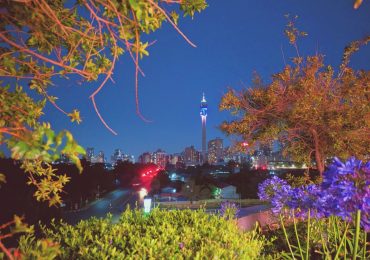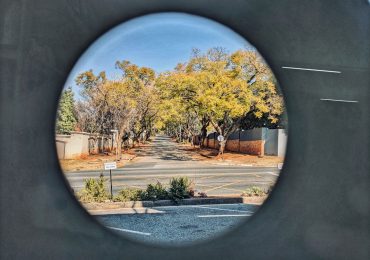Header image: Courtesy of the Booker Prize
British author Samantha Harvey has won the 2024 Booker Prize for her novel Orbital.
She receives £50,000 (about R1.15 million) prize money, and was presented with her trophy by Paul Lynch, last year’s winner, at a ceremony in London, UK.
‘I was not expecting that,’ Harvey said in her acceptance speech. ‘We were told that we weren’t allowed to swear in our speech, so there goes my speech. It was just one swear word 150 times. Gosh. I have no idea how to deal with this. I’m completely overwhelmed.’
Harvey dedicated the prize to everybody who speaks ‘for and not against the Earth, for and not against the dignity of other humans, other life, and all the people who speak for and call for and work for peace’.
‘To look at the Earth from space is a bit like a child looking into a mirror and realising for the first time that the person in the mirror is herself,’ she said.
‘What we do to the Earth, we do to ourselves. What we do to life on Earth, human and otherwise, we do to ourselves.’
Harvey, who was previously longlisted for the Booker in 2009 for her debut novel, The Wilderness, is the first woman to win the prestigious prize since 2019. At just 136 pages long, Orbital is the second-shortest book to win the award, and in fact is just four pages longer than the shortest-ever Booker winner, Penelope Fitzgerald’s Offshore, which won in 1979. Orbital is the first Booker-winning book to be set in space, and it is also the biggest-selling book on the shortlist, in the UK—in fact, more copies of Orbital have been sold than the past three Booker winners combined had sold before they won.
Orbital, which is Harvey’s fifth novel and sixth book, takes place over twenty-four hours, following six astronauts and cosmonauts aboard the International Space Station. Edmund de Waal, chair of the 2024 judges, said:
‘In an unforgettable year for fiction, a book about a wounded world. Sometimes you encounter a book and cannot work out how this miraculous event has happened. As judges we were determined to find a book that moved us, a book that had capaciousness and resonance, that we are compelled to share. We wanted everything.
‘Orbital is our book. Samantha Harvey has written a novel propelled by the beauty of sixteen sunrises and sixteen sunsets. Everyone and no one is the subject, as six astronauts in the International Space Station circle the earth observing the passages of weather across the fragility of borders and time zones. With her language of lyricism and acuity Harvey makes our world strange and new for us.
‘All year we have celebrated fiction that inhabits ideas rather than declaiming on issues, not finding answers but changing the question of what we wanted to explore. Our unanimity about Orbital recognises its beauty and ambition. It reflects Harvey’s extraordinary intensity of attention to the precious and precarious world we share.’
De Waal was joined on this year’s judging panel by award-winning novelist Sara Collins; fiction editor of the Guardian Justine Jordan; world-renowned writer and professor Yiyun Li; and musician, composer and producer Nitin Sawhney. They judges chose the winning title from 156 books published between 1 October 2023 and 30 September 2024 and submitted to the prize by publishers.
First awarded in 1969, the Booker Prize is open to writers of any nationality, writing in English and published in the United Kingdom or Ireland.
Last year’s winner was Paul Lynch for his novel Prophet Song, which saw a 1500% increase in sales in the week following its win—the commercial boost being known as the ‘Booker effect’.





